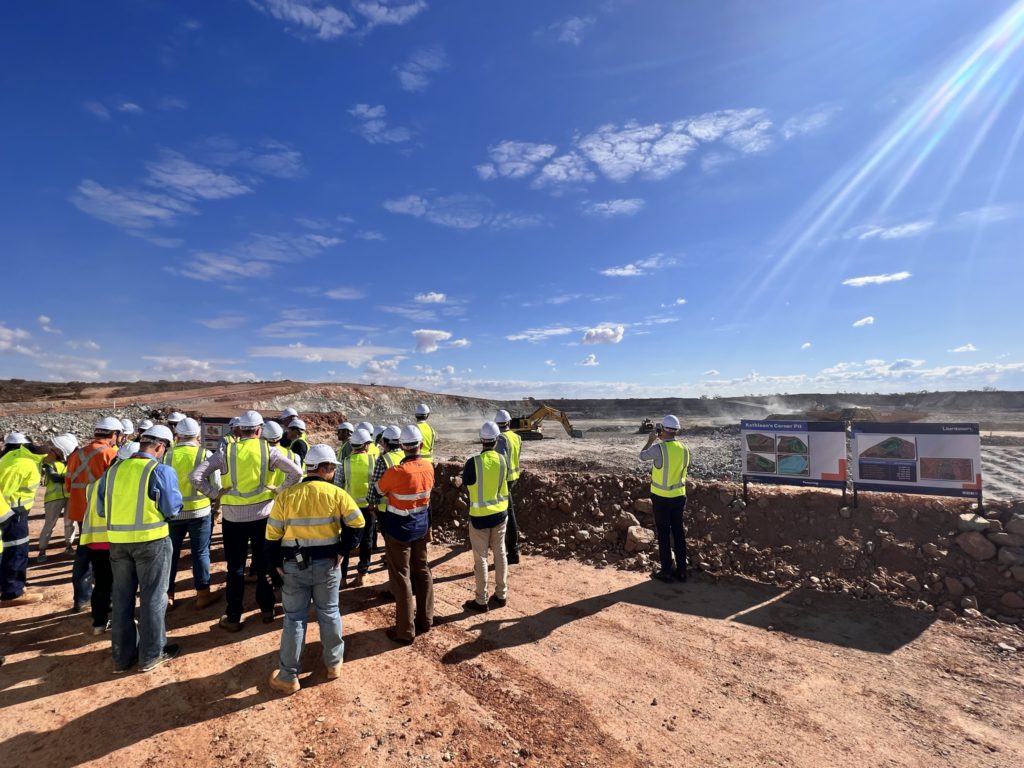Liontown stock dives after bid collapse, emergency fund raising

Liontown Resources Ltd.’s shares plunged when they resumed trading for the first time after US giant Albemarle Corp. walked away from a proposed takeover, forcing it to find alternative funding for its key lithium project.
The shares fell as much as 35% at the open in Sydney, and were trading at A$1.875 apiece as of 11:23 a.m. in Sydney. Before abandoning its planned purchase on Monday, Albemarle valued the company at A$3 a share. Late Thursday, Liontown announced it had lined up A$1.1 billion ($694 million) through an equity raising and a debt financing to fund its Kathleen Valley lithium project.
Friday’s share plunge spotlights Liontown’s recent rocky ride as it’s sought to benefit from the surge in demand for lithium, a vital material in the new-energy boom. Eager to add new supply, Albemarle had pursued its Perth-based target for months to capitalize on Kathleen Valley — one of Australia’s most promising deposits that’s due to start producing next year.
Over the past weeks, however, Albemarle has had to contend with the arrival of combative mining tycoon Gina Rinehart, as her Hancock Prospecting Pty. steadily built up a 19.9% stake in Liontown. Last week, she became the single largest investor, with enough clout to potentially block a shareholder vote on the deal. That led to the US company abandoning the A$6.6 billion deal, citing “growing complexities associated with executing the transaction.”
“The withdrawal of the US lithium giant is a double-shot disaster for Liontown,” said Hebe Chen, an analyst at IG Markets Ltd. “The ‘no-other-way-to-go’ new shares plan not only significantly discounts its share value but also exacerbates the financial turbulence that Liontown has endured throughout this year, which is disconcerting for its investors.”
On Monday, after Ablemarle’s withdrawal, Liontown requested a trading halt to allow it to finalize funding.
Liontown said Thursday it raised A$365 million through a share placement with institutional investors, and a further A$10.8 million from Chairman Timothy Goyder. The shares were priced at A$1.80 apiece, representing a 35% discount to Liontown’s closing price of A$2.79 last week.
Liontown also signed commitment letters for a debt package of A$760 million from banks and government credit agencies, it said Thursday. The company plans to raise up to a further A$45 million from existing shareholders.
Cost pressures
Proceeds from the debt and equity raising will be used to refinance existing debt and completing costs for the Kathleen Valley project in Western Australia, which has been pressured by higher input prices. In September, Liontown announced the project would cost A$951 million to enter production.
“We have ensured an appropriate financial buffer is in place to allow the company to successfully weather any unforeseen issues that may arise,” chief executive officer Tony Ottaviano said in Thursday’s statement, adding that the financings are critical in de-risking the development of the project.
Rinehart’s next steps are unknown. Her privately held Hancock Prospecting said last week that it sought a “prominent influence in Liontown’s future.”
Liontown’s share plunge on Friday — which was its biggest since March 2015 — was no surprise, according to Citigroup Inc. analysts led by Kate McCutcheon.
“While the price of A$1.80 per share is a 40% discount to Albemarle’s withdrawn bid and likely to disappoint Liontown holders, it’s in line with the trading range of producers here given spodumene pricing is down about 30% over the quarter,” the analysts wrote in a note, in which they upgraded the stock from sell to neutral. “Kathleen Valley, in time, will likely be a meaningful producer,” while the company’s balance sheet overhang was now removed, they added.
(By Georgina McKay and Sybilla Gross)
{{ commodity.name }}
{{ post.title }}
{{ post.date }}




Comments